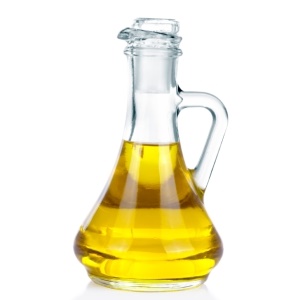
We are constantly being bombarded with conflicting, confusing and even scary messages about food, diet and nutrition.
For example, The Real Meal Revolution, promoting the popular low-carb, high-fat (LCHF) diet, also known as Banting, claims that South African seed oils like canola and sunflower, as well as olive oil are toxic and should be avoided.
Scientific analysis
Is this simply scaremongering or should we banish them from our kitchens?
No, says respected nutritional researcher and dietitian Dr Maretha Opperman, associate professor at the Functional Foods Research Unit (FFRU) of the Cape Peninsula University of Technology’s Department of Biotechnology and Consumer Science.
She and fellow researchers recently did a scientific analysis to determine the quality of three South African seed oils (canola, sunflower and olive oil) by comparing them against internationally accepted standards.
Read: The health benefits of canola oil
Their findings, newly published in the South African Journal of Clinical Nutrition (SAJCN), challenge the book’s contentious statement that "South African seed oils are toxic, genetically modified and high in harmful trans-fatty acids (TFA)".
The FFRU study found the three oils contained a "negligible amount of TFA, adhered to international recommendations with respect to fatty acid content, and were well within the safe range for oxidation products".
Professor Opperman and her fellow researchers bluntly described The Real Meal Revolution’s statement about seed oils as "inaccurate, without merit and with no substantial scientific evidence to authenticate it".
Most scientists tend to question, analyse and disagree (that’s their job), but how does this affect us? In the nutrition field, such statements "simultaneously convey confusing and incorrect messages to the consumer, which can compromise health", remarks Professor Opperman. She adds that "statements and opinions intended to provoke fear are often misinformed and unsound".
What’s all the fuss about fats?
The hullabaloo about "toxic seed oil" has resulted in other local biochemical and nutrition experts supporting the FFRU study findings.
Consuming "different sources of n-3 fatty acid (omega-3) in the diet should be encouraged", says nutritional biochemist Professor Marius Smuts of the Centre of Excellence for Nutrition at Potchefstroom’s North-West University. In the same edition of the SAJCN he and co-author, nutritionist Dr Linda Malan write that scientists now have a better understanding of how dietary fat and oil affects health and disease.
Read: Omega-3 reduces anxiety, inflammation
“For example, certain fatty acids are essential nutrients involved in important physiological processes, including brain development and functioning. They can also reduce the risk of the development of nutrition-related non-communicable diseases.”
Stressing that "the choice of an oil depends on the food preparation or processing method used", Prof Smuts and Dr Malan say that "educating people to make the right choices regarding any dietary intake guidelines remains a priority".
For this reason, they advise people to consider the way they prepare food and store seed oils, since the type of fat and oil consumed can have a major impact on long-term health.
Professor Opperman is emphatic that "seed oils form an essential part of the South African diet". These oils add to the dietary intake of vitamin E, but also polyunsaturated fatty acid (PUFA) and monounsaturated fatty acid (MUFA), which have both consistently been associated with several health benefits.
In addition, PUFA contains essential fatty acids like omega-6 and omega-3, which your body cannot produce, so the only way to obtain them is via your diet.
The FFRU results offer reassuring news that South African canola, olive and sunflower oils are of good quality and safe for human consumption. So next time you visit your local supermarket, you’ll have one less thing to worry about when you add that bottle of seed oil to your trolley.
Read more:
The Real Meal Revolution launches new online Banting course
Sources:
1. Opperman M, Benadé A, Abrecht C, Matsheka L. South African seed oils are safe for
consumption. S Afr J Clin Nutr. 2016; 29(1):7-11.
2. Smuts M, Malan L. Perspectives on the use of seed oils in the South African diet. S Afr J Clin Nutr. 2016; 29(1):7-11.
3. http://www.ncbi.nlm.nih.gov/pmc/articles/PMC3821093/
4. http://www.oliveoiltimes.com/olive-oil-basics/world/heat-light-oxygen-harm-olive-oil/26626
5. http://www.oilsfats.org.nz/documents/Oxidation%20101.pdfhttp://www.health24.com/Diet-and-nutrition/Healthy-foods/Nuts-seeds-and-grains/Which-oil-should-you-use-20131001




 Publications
Publications
 Partners
Partners















